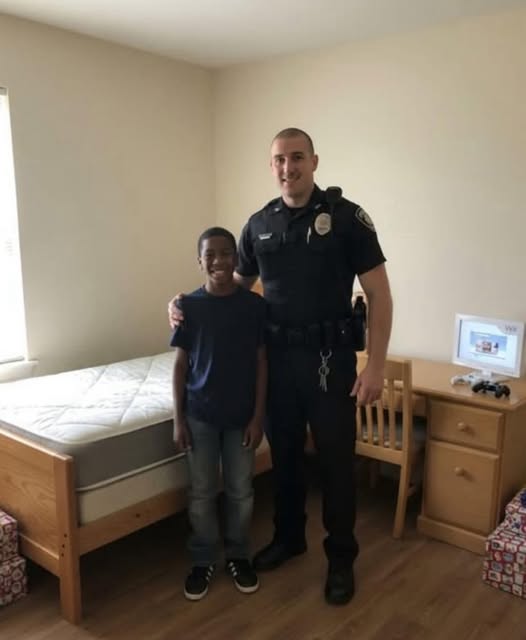In the quiet early hours of a Tuesday morning, a 911 call in Charleston, South Carolina, was not about a crime in progress. It was a call from a tired 13-year-old boy who had reached his breaking point. He was living in a nearly empty room, sleeping on a deflated air mattress, and the emotional weight of his situation had become too heavy to bear alone. When Officer Gaetano Acerra responded to the call, he found a scene of profound need. The boy’s grandmother was providing love and shelter, but the essentials that make a house a home—a proper bed, a desk, simple comforts—were missing.
The image of the boy’s hollow eyes and barren room stayed with Officer Acerra long after his shift ended. He knew a standard report wouldn’t change the boy’s circumstances. Driven by a sense of compassion that went beyond his duty, he decided to act. Three days later, Officer Acerra returned to the house, but not for an official follow-up. He arrived in a pickup truck filled with furniture and hope. He brought a real bed with fresh sheets, a desk and chair for studying, and even a Nintendo Wii to bring a sense of fun and normalcy to the boy’s life.
The transformation was instant. The boy’s face, once etched with exhaustion, lit up with joy and disbelief. His empty room was suddenly filled with the promise of rest, study, and a childhood he deserved. Officer Acerra later explained that his motivation was simple; as a father himself, he could not ignore what he had seen. The story, which quickly spread through the community, serves as a powerful reminder that the most impactful police work isn’t always about enforcement, but about empathy and the simple, powerful act of seeing someone in need and choosing to help.
